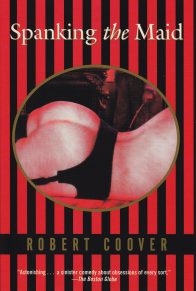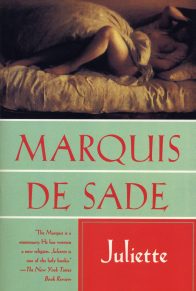Over the past few years we have come to understand what has made for the greatest best seller of all time, the success of the New Testament. It is because this book has its secret. On every page, in every line, this book implies something never flatly stated, but which intrigues and involves us all the more on that account. And since in this piece we shall not have anything further to say about the Gospel, nothing need prevent us from disclosing its secret.
It is that Jesus Christ is light of heart. As shown us by the New Testament, he is solemn and rather pensive, irritated sometimes, at other times in tears, and always very serious. But we detect something else, something the New Testament does not tell us: that Jesus is not against an occasional joke. That he is full of humor.
That he now and again talks without rhyme or reason, just to see what will happen (when he addresses the fig trees, for instance) In short, that he enjoys himself.
I would not like to hurt anyone’s feelings by comparing the Gospel of Good with the most ingenious, and also the most extensive, of all Gospels of Evil which a clear-minded and eminently sane rebel once composed. But I still must say it: if Justine deserved to be favorite reading—at least during a certain period of their lives—with Lamartine, Baudelaire, and Swinburne, with Barbey d’Aurevilly and Lautrámont, with Nietzsche, Dostoevski, and Kafka (or, on a slightly different plane, with Ewerz, Sacher-Masoch, and Mirbeau) it is because this strange although apparently simple book, which the writers of the nineteenth century—hardly ever designating it by name—spent their time plagiarizing, utilizing, applying, refuting, this book which posed a question so grave that to answer it and to fall short of answering it completely was as much as an entire century could achieve, this book contains its secret too. I shall come back to it. But first let’s settle the question of immorality.
II. CONCERNING CERTAIN DANGEROUS BOOKS
Is there anything to be added to what has already been said about the advantage and need of punishment for the wrongdoer? There are a thousand opinions on the subject, and a hundred thousand treatises have been written; and yet it seems to me that the crux of the matter has been neglected, possibly because it is too obvious, because it goes without saying. Well, saying it will make it better still.
The first point is only too evident: that criminals are a menace, that they imperil society and are a threat to the human race itself, from whose standpoint, for example, it would be better if there were no murderers. If the law left each of us at liberty to kill his neighbors (as often we would like to do) and his parents (which the psychoanalysts claim is what we basically desire), there would not be many people left alive on earth. Only friends would be left. Not even friends would be left, for finally—though this is a detail we usually forget to consider—our friends are themselves the fathers, sons, or neighbors of somebody. I move on to the second point, which is equally obvious once one gives it a little thought.
This second point is that criminals are in general curious people, more curious than law-abiding people: I mean unusual, giving more food for thought. And though it may happen that they utter nothing but banalities, they are more surprising to listen to—owing precisely to this contrast between the dangerous content within and the inoffensive appearance without. Of all this the authors of detective stories are very aware: no sooner do we begin to suspect the honest country lawyer or the worthy pharmacist of having once upon a time poisoned a whole family, than the slightest thing he says warrants our most avid attention, and he needs but predict a change in the weather for us to sense he is meditating some new crime. Moralists declare that it suffices to have brought an end, even through negligence, to a single human life in order to feel oneself utterly changed. And moralists are imprudent in saying so, for all of us desire to feel such a change in ourselves. It’s a wish as old as the world; it’s more or less the story of the Tree of Good and Evil. And if discretion ordinarily restrains us from changing ourselves to this extent, we nevertheless have the keen desire to frequent those who have undergone the experience, to befriend them, to espouse their remorse (and the Knowledge that comes thereof). The only point to remember here is the conviction I referred to earlier that an assassin is not someone to encourage; and that through admiring him we participate in some vast plot against man and society. And here is where even those among us who are not overly scrupulous find themselves all of a sudden betwixt and between, torn by conflicting feelings, deprived alike of the advantages of a good conscience and of a bad. Here is where punishment intervenes.
Shortcomings and merits of criminals
I may safely assert that it straightens out everything. As of the moment the thief is robbed in his turn—if not always of his money, at least of some years of his life, which are worth money and a good deal more besides—and the assassin assassinated, we may without hesitation associate with them, and for example, while they are still alive, bring them oranges in prison; we may become fond of them, enamored of them, we can even feast upon their words: they are paying, they have paid. This we know; it was yet better known by the kings and queens and saints who in olden days used to accompany criminals up to the scaffold, and who would even, like Saint Catherine, catch a few drops of their blood to save. (And who today is not stirred by gratitude toward the handful of men who teach us, as they pay the extreme penalty, the danger and the very meaning, which had become lost to us, of treason?)
Advantages of punishment
This is what I have been driving at: for one hundred and fifty years it has been the custom to frequent Sade through the intermediary of other authors. We do not read Les Crimes de l’Amour, instead we read L’Auberge de l’ange gardien; nor do we read Philosophy in the Bedroom but Beyond Good and Evil; nor Les Infortunes de la Vertu, but The Castle or The Trial; nor Juliette, but Weird Women; nor La Nouvelle Justine, but Le Jardin des supplices; nor Le Portefeuille d’un homme de lettres (which has, moreover, been lost) but Les Mémoires d’outre-tombe. And in such timidity one can find little else than the effect of the scruples I mentioned earlier. Yes, it is true that Sade was a dangerous man: sensual, violent-tempered, a knave upon occasion, and (in his dreams if not elsewhere) atrociously cruel. For not only does he invite us to slay our neighbors and our parents, he would have us kill our own wives. He would go even further: he would with pleasure see the whole of mankind done away with, to make room for some new invention of Nature. He was not particularly sociable; nor social either. He cared about liberties. He had liberties on the brain. But these are scruples we can set at rest.
For Sade paid, and paid dearly. He spent thirty years of his life in various bastilles, fortresses, or keeps of the Monarchy, then of the Republic, of the Terror, of the Consulate and of the Empire. “The freest spirit,” said Apollinaire, “that has ever lived.” The most imprisoned body, at any rate. It has sometimes been maintained that to all his novels there is a single key, and that it is cruelty (and that, I would maintain, is to take a simple view of them). But far more surely, to all his adventures and to all his books there is a single end, and that is prison. There is even a mystery in so many arrests and internments.
Let us see how well the crime corresponds to the punishment. It seems established that Sade gave a spanking to a whore in Paris: does that fit with a year in jail? Some aphrodisiac sweets to some girls in Marseilles: does that justify ten years in the Bastille? He seduces his sister-in-law: does that justify a month in the Conciergerie? He causes no end of bother to his powerful, his redoubtable inlaws, the President and the Presidente de Montreuil: does that justify two years in a fortress? He enables several moderates to escape (we are in the midst of the Terror): does that justify a year in Madelonnettes? It is acknowledged that he published some obscene books, that he attacked Bonaparte’s entourage; and it is not impossible that he feigned madness. Does that justify fourteen years in Charenton, three in Bicêtre, and one in Sainte-Pélagie? Would it not strongly appear as if, for a whole string of French governments, any and every excuse sufficed for clapping him behind bars? and, who knows, as if Sade did about all he could to get himself imprisoned? Perhaps; one thing however is certain: we know that Sade ran his risks; that he accepted them—that he multiplied them. We also know that in reading him we are possibly running risks of our own. Here am I, free to think what thoughts I will about that descendant of the chaste Laure de Noves, to wonder what there may have been that was good in him, and at any rate delightful; to muse upon that extreme distinction, upon those blue eyes into which, when he was a child, ladies liked to look; upon that faint hint of effeminacy about his figure, upon those sparkling teeth; upon those wartime triumphs; upon that violent bent for pleasure; upon those repartees, impetuous but subtle and perhaps tinged with something of cockiness and vainglory; upon the young Provençal nobleman whose vassals come to do him homage, and who is accompanied wherever he goes by the too faithful love, the love-in-spite-of-everything of that tall and somewhat equine and rather boisterous René—his wife—at bottom a good and gentle woman.
Sade paid, and paid more than his share.
III. THE DIVINE MARQUIS
I shall leave aside the special efficacy Duclos had in mind when he spoke of “those books you read with only one hand.” Not that it isn’t interesting, and to a certain extent sensational: more than one very serious and even abstruse writer has dreamed that his writings might exert a similar influence, generate similar repercussions (on other levels, of course). But touching all this there is not much to be said, since such results are usually unpredictable. Then, too, it is usually agreed that veiled language and allusion (or if you prefer, teasing and smuttiness) are more apt to produce them than forthright and unadorned obscenity. Now, veiled language and allusion are rare in Sade, and smuttiness nonexistent. Indeed, that may be what is held against him. Nothing is further from him than that kind of smug smile, of malicious innuendo which Brantôme displays in his tales of thoroughbred distractions, which Voltaire or Diderot show in their spicy passages, and that mincing deviousness which Crébillon, in his stories of alcoves and sofas, brings to discouraging perfection. There is in literature a freemasonry of pleasure, whose winks and nods and half-spoken enticements and ellipses are known to all its members. But Sade breaks with these conventions. He is as unhampered by the laws and rules of the erotic novel as was ever an Edgar Allan Poe by those of the detective story, a Victor Hugo by those of the serialized novel. He is unceasingly direct, explicit—tragic too. If at all costs he had to be classified, it would be among those authors who, as Montaigne once said, castrate you. Surely not among those who titillate you. And there is another sort of device he spurns.
It is the one we must term the literary device. Many a famous work owes its value—and in any case its renown—to the incorporation of an intricate system of literary allusions. Voltaire in his tragedies, Delille in his poems evoke in every line, and take credit in evoking, Racine or Corneille, or Virgil, or Homer. To cite only the nearest rival of Sade (and, as it were, his competitor in the domain of Evil) it is fairly obvious that Laclos is steeped to saturation in a literature—whereof, moreover, he makes the cleverest, the most intelligent use. Les Liaisons dangereuses is the joust of courtly love (for everything consists in finding out whether Valmont will succeed in meriting Madame de Merteuil), waged by Racinian heroines (neither Phaedra nor Andromache is lacking) within the lists of the facile society painted by Crébillon, by Nerciat, by Vivant-Denon (for everything proceeds straight and briskly to the bedchamber—everything at least is envisaged with this denouement in view). Such is the key to its mystery: discreetly wrapped up inside Les Liaisons is a little course on the history of literature for grownups. For the most mysterious authors are generally the most literary, and the strangeness in their writings is owing precisely to the disparate elements they contain, to this yoking together of characters come from the remotest milieux—and works—who are quite astonished to encounter one another. Laclos, moreover, was never able to reproduce his prodigious feat again.
Neither a pornographer nor a littérateur
But Sade, with his glaciers and his gulfs and his terrifying castles, with the unremitting onslaught he delivers against God—and against man himself—with his drumming insistence and his repetitions and his dreadful platitudes, with his stubborn pursuit of a sensational but exhaustively rationalized action, with this constantly maintained presence of all the parts of the body (not a one of them but somehow serves), of all the mind’s ideas (Sade had read as widely as Marx), with this singular disdain for literary artifices but with this unfaltering demand for the truth, with this look of a man forever animated and entranced by one of those undefinable dreams that sometimes take rise in the instinct, with these tremendous squandering of energy and these expenditures of life which evoke redoubtable primitive festivals—or great modern wars, festivals of another sort perhaps—with these vast raidings of the world or, better still, this looting he is the first to perpetrate on man, Sade has no need of analyses or of alternatives, of images or of dramatic turns of events, of elegance or of amplifications. He neither distinguishes nor separates. He repeats himself over again. His books remind one of the sacred books of the great religions. From them emanates, for brief instants caught in some maxim—
One of those dreams whose source is in instinct
Dangerous moments there are when the physical self is fired by the mind’s extravagances. . . .
There is no better way to familiarize oneself with death than through the medium of a libertine idea.
They declaim against the passions without bothering to think that it is from their flame philosophy lights its torch. . . .
—(and what maxims they are!) that mighty and obsessing murmur which sometimes arises from literature, and is perhaps its justification: Amiel, Montaigne, the Kalevala, the Ramayana. If it be objected that these I include among sacred books have never had their religion nor their faithful, I shall begin my reply by saying that it is a very good thing and that we should be glad (thereby being in a freer position to judge the books on their own merits instead of by their effects). Upon further thought, I shall add that I am not so sure after all, and that the religion in question was by its very nature condemned to clandestinity—but able, from hiding, to address an appeal to us now and then: three lines out of Baudelaire:
Who hide a whip under their trailing robes
And mingle, in the dismal wood and lonely night,
The foam of pleasure with the flow of tears.
Joseph de Maistre’s remark: “Woe unto the nation that were to ban torture”; Swinburne’s phrase “the martyred Marquis”; Lautrámont’s “Cruelty’s delights! They are delights that endure”; Pushkin’s observation upon “the joy we are hurled into by whatever heralds death.” As for Chateaubriand—I am wary of the somewhat murky pleasure that Chateaubriand, among others, derives from the death of women who once loved him, of regimes he fought for, of the religion he believes the true one. And there are reasons, though they are not easily elucidated reasons, why Sade has so often been designated as the Divine Marquis. Whether or not he actually was a marquis is open to question; but there is no question that a certain number of persons, and apparently respectable persons, held him to be divine—or properly diabolical, which is something akin.
Sade divine if not a marquis
Still, on this score a doubt does assail me. I wonder, when today I behold so many writers struggling so hard and so consciously to avoid literary artifice in their treatment of an indescribable event of whose erotic and at the same time frightful character we are given every assurance, mindful in all circumstances to misconstrue Creation, and busy looking for the sublime in the infamous, the great in the subversive, demanding furthermore that every work commit and compromise its author forever in keeping with a kind of efficacy (which is not without its resemblance to the wholly physiological and local efficacy I referred to earlier), I wonder if one is not compelled to recognize, in a terror so extreme, less an invention than a remembrance, less an ideal than a nostalgia, and in short if our contemporary literature, in that area where it seems to us most alive—most aggressive, in any case—is not oriented entirely toward the past and, to be precise, dominated, determined by Sade as eighteenth-century tragedy was by Racine.
But my aim was only to talk about Justine.













